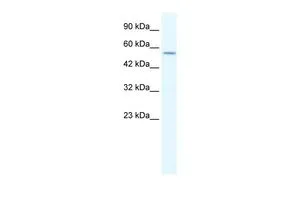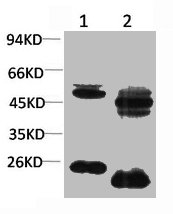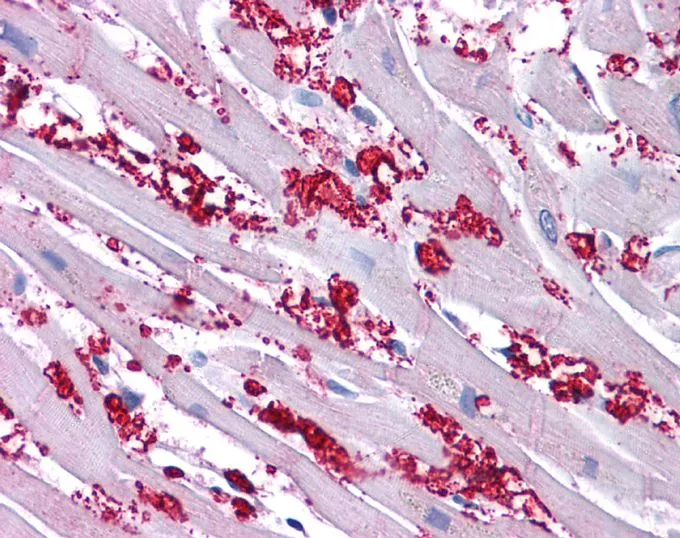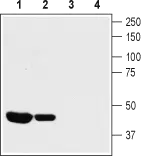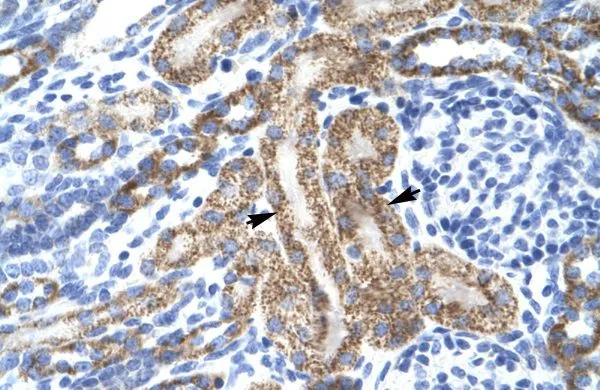
IHC-P analysis of human kidney tissue using GTX47683 KCNA10 antibody at 4.0-8.0μg/ml.
KCNA10 antibody, Internal
GTX47683
ApplicationsWestern Blot, ImmunoHistoChemistry, ImmunoHistoChemistry Paraffin
Product group Antibodies
ReactivityHuman
TargetKCNA10
Overview
- SupplierGeneTex
- Product NameKCNA10 antibody, Internal
- Delivery Days Customer9
- Application Supplier NoteWB: 0.2-2.5 ug/ml. IHC-P: 2-10 ug/ml. *Optimal dilutions/concentrations should be determined by the researcher.Not tested in other applications.
- ApplicationsWestern Blot, ImmunoHistoChemistry, ImmunoHistoChemistry Paraffin
- CertificationResearch Use Only
- ClonalityPolyclonal
- Concentration0.5-1 mg/ml
- ConjugateUnconjugated
- Gene ID3744
- Target nameKCNA10
- Target descriptionpotassium voltage-gated channel subfamily A member 10
- Target synonymsKcn1, Kv1.8, potassium voltage-gated channel subfamily A member 10, cyclic GMP gated potassium channel, potassium channel, voltage gated shaker related subfamily A, member 10, potassium voltage-gated channel, shaker-related subfamily, member 10, voltage-gated potassium channel subunit Kv1.8
- HostRabbit
- IsotypeIgG
- Protein IDQ16322
- Protein NamePotassium voltage-gated channel subfamily A member 10
- Scientific DescriptionPotassium channels represent the most complex class of voltage-gated ion channels from both functional and structural standpoints. Their diverse functions include regulating neurotransmitter release, heart rate, insulin secretion, neuronal excitability, epithelial electrolyte transport, smooth muscle contraction, and cell volume. Four sequence-related potassium channel genes - shaker, shaw, shab, and shal - have been identified in Drosophila, and each has been shown to have human homolog(s). This gene encodes a member of the potassium channel, voltage-gated, shaker-related subfamily. This member contains six membrane-spanning domains with a shaker-type repeat in the fourth segment. It is specifically regulated by cGMP and postulated to mediate the effects of substances that increase intracellular cGMP. This gene is intronless, and the gene is clustered with genes KCNA2 and KCNA3 on chromosome 1. [provided by RefSeq, Jul 2008]
- ReactivityHuman
- Storage Instruction-20°C or -80°C,2°C to 8°C
- UNSPSC41116161

